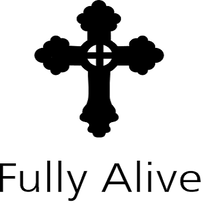|
by John Morton
"Mary stands as the definitive example of what a Christian, what all of us, are asked to do. We are to give oneself to the Lord, to accept his will and do our best to understand and live by it." Fully Alive’s Lenten Scriptural Commentary helps Christians get more out of Lent by taking God’s word seriously. Mostly avoiding personal stories and anecdotes, our commentary dives deeply into the scripture readings for each day and applies them to the broader context of Lent. We use the daily Mass readings from the Catholic lectionary. If possible, read each passage slowly, taking in each word. If you find that you’ve hurried through a reading, read it over a few more times. Let the words reverberate in your heart. After you’ve let it sink in, read our Lenten Scriptural Commentary. The Solemnity of the Annunciation Today's Old Testament reading contains the prophesy of the incarnation, of God made flesh, from Isaiah. In the epistles, Paul explains how Christ’s sacrifice, the sacrifice of the blood of God himself, is the ultimate sacrifice, the one that really counts. And this would not be possible without, well, God being made flesh, which is announced by Gabriel in the Gospel. Readings: Is 7:10-14; 8:10 / Heb 10:4-10 / Lk 1:26-38 Click here to read the complete text from the USCCB website Then the angel said to her, "Do not be afraid, Mary, for you have found favor with God. Behold, you will conceive in your womb and bear a son, and you shall name him Jesus. He will be great and will be called Son of the Most High, and the Lord God will give him the throne of David his father, and he will rule over the house of Jacob forever, and of his Kingdom there will be no end." (cf. LK 1: 30-33) Christianity rests upon two ultimate truths: the incarnation and the resurrection. One cannot exist without the other. Just as the blood sacrifices prescribed in the ceremonial law of the Old Testament were unable to truly remove one's sin, so too would human blood be able to remove it. The only sacrifice that could remove the stain of sin was the sacrifice of God himself, of Christ. Power, true power, was not come to this world in glory, in riches, or in military might. No, it was to come in thru a poor family, a baby, a man persecuted and shunned by those he sought to save. It came through the dishonor of torture, mockery, and ultimately crucifixion. It came through humility, through love, and through sacrifice. During this season of Lent we should ask ourselves: are we willing to give ourselves wholly to the will of God as Mary did? Mary said, "Behold, I am the handmaid of the Lord. May it be done to me according to your word." (cf. LK 1:38) This is why Mary stands as the definitive example of what a Christian, what all of us, are asked to do. We are to give oneself to the Lord, to accept his will and do our best to understand and live by it. During Lent, a time of almsgiving, fasting, and prayer, we have a special opportunity to reflect on our own behaviors, and to ponder (as Mary did) what it means to follow the Lord. John Morton is a writer, historian, and theologian from Minnesota. He founded Fully Alive with Erik Ritland in 2017. In addition to writing articles, he is also the podcast co-host and social media content strategist.
0 Comments
Leave a Reply. |
Authors
Erik Ritland received his MA in Theology in 2017. He's the founder and content manager of Fully Alive Christian Media and Rambling On, copy editor and writer for Music in Minnesota, and an acclaimed songwriter. Archives
April 2019
Categories |

 RSS Feed
RSS Feed
